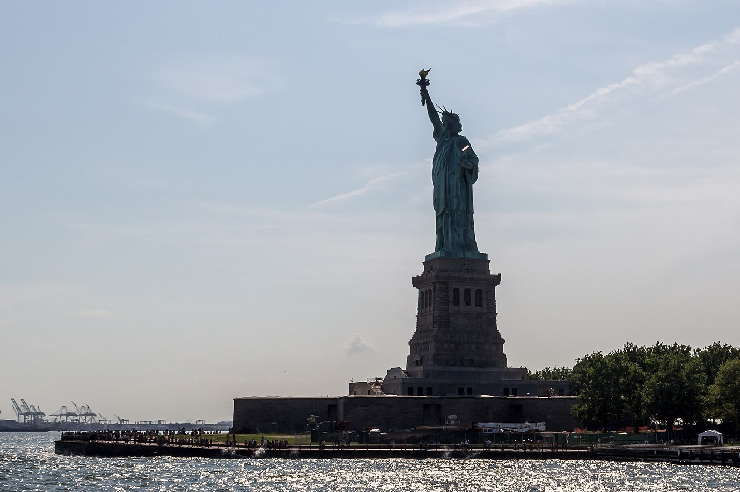Cities must resist the federal crackdown on noncitizens in the United States.
Published in Newsday.
At a time when the rights of noncitizens are increasingly under assault nationwide, New York has a special obligation to stand by immigrants. New York City is a place that uniquely demonstrates how those coming to America from other countries help to build vibrant urban communities.
That’s why Mayor Michael Bloomberg’s Executive Order 34, which revised a long-standing policy that banned city employees from reporting undocumented immigrants to federal authorities, is a distressing development. Although the new order retains a “don’t-ask” bias, it stands on the wrong side of a local debate about how best to protect residents’ privacy, and it sends the wrong signal to the nation.
The federal government is pressuring municipalities across the country to turn their employees into extensions of the Border Patrol. We need strong protections for non-citizens in New York City to show that Washington’s pursuit of homeland security—often carried out in the city’s name—has taken on a frightening character, and to encourage other cities to resist the federal crackdown on immigrants.
New York showed leadership with its past policy, which started under Mayor Koch in 1989. Even as anti-immigrant sentiments swept other parts of the nation—propelling California’s Proposition 187—New York City proudly defended the principle of confidentiality.
Mayor Giuliani sued to defend the city’s stance when “don’t tell” guidelines were invalidated by a 1996 federal law. After he lost in court, allies sought new ways to reaffirm the old policy.
Bloomberg’s order doesn’t do this. Facing intense criticism from community groups, unions and legal advocates in the weeks that followed the release of the order in late May, the mayor has emphasized that no one should fear seeking public services, and that city officials will not actively inquire about immigration status.
But while city employees may not routinely ask for personal information, nurses, teachers and social workers may learn one’s status when providing services. If the Department of Homeland Security demands information collected incidentally, or personal information already on record, the city under Order 34 would hand it over.
Moreover, the order exempts police from the regulations entirely. Officers can question witnesses about immigration status even if the bystanders are not suspected of any crime.
City Council member Hiram Monserrate has sought to seal such loopholes. By mandating that a wide range of personal information be treated with confidentiality, his “Access Without Fear” Bill would place enforceable limits on what city officials could relate to federal agencies. And since the policy would not single out immigration status, it should hold up in court.
The Bloomberg administration has testified against this legislation, evidently favoring fewer restrictions on collaboration between the NYPD, the FBI, and the Department of Homeland Security.
But Monserrate, an ex-cop, rightly argues that strong privacy guarantees are needed to make vulnerable communities feel comfortable seeking assistance from the city and reporting crimes to the police—things that are in everybody’s interest. That’s why he is fighting to bring New York City’s policies in line with pro-immigrant policing procedures in Seattle and San Francisco.
Such policies are vital in defying pressure from the White House, which reportedly helped force a clarification of the New York policy. Many of the law enforcement measures promoted by the Bush administration since 9/11 have discriminated against and unfairly punished noncitizen residents of the United States.
An internal Justice Department report released the same week as Bloomberg’s order confirmed accusations that hundreds of people were rounded up, incarcerated and denied lawyers after 9/11.
While none of those arrested were charged with crimes related to terrorism, suspects were verbally abused and slammed against walls prior to making videotaped statements. Authorities lied to family members who came to the Metropolitan Detention Center in Brooklyn to inquire about loved ones, falsely indicating that the prisoners were not there.
The recklessness exhibited in these cases gives all the more reason for the city to safeguard residents’ personal information.
More generally, since last November, men and boys from predominately Muslim countries have been forced to report for mass registrations. These bear uncomfortable similarity to the acts that prefaced the internment of Japanese-Americans during World War II. And even as it announced a ban on racial profiling in mid-June, the Bush administration indicated that programs like special registration would continue.
Scapegoating immigrants does nothing to promote our national security. The erosion of civil liberties and discrimination based on race or religion endanger core American values.
Mayor Bloomberg claims to uphold these ideas. But his assurances should be backed by support for the strong privacy legislation being debated in City Council. And they should be accompanied by criticisms of a presidential administration that shows little regard for millions of noncitizens who make invaluable contributions to our economy and our communities.
__________
Research assistance for this article provided by Katie Griffiths. Photo credit: Dietmar Rabich / Wikipedia Commons
